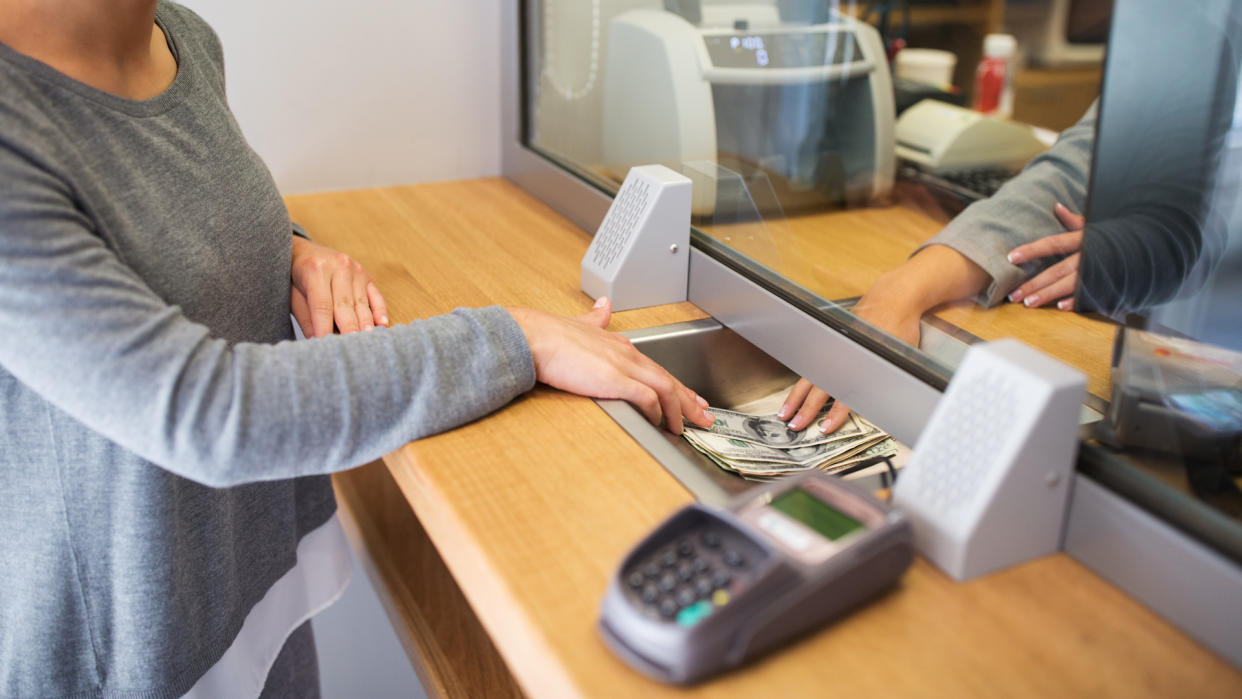Here’s How Much Emergency Cash To Keep in Your Checking Account

Undoubtedly, it is a good idea to have emergency cash available in your checking account, but few people can agree on just how much is necessary to avoid financial disaster.
See the List: GOBankingRates’ Best Banks of 2023
More: What To Know if You Deposit More Than $10K Into Your Checking Account
We asked our readers the minimum balance they keep in their checking accounts. Surprisingly, over 37% responded that they kept $100 or less. Another nearly 20% answered that they keep between $101 and $500, while 14% said that they always have at least $501 to $1,000 in their account.
Only 9.5% of respondents replied that they keep $1,001 to $1,500 and even less (5.4%) said they keep $1,501 to $2,000 on hand in their checking account. Finally, 14% of respondents noted that they always have $2,001 or more accessible.
How Much Money Should You Have on Hand?
While most financial experts agree that you should build an emergency fund to cover three to six months of living expenses. Ideally, however, you will have even more saved to avoid hardship in the event of a sudden life change such as an illness, injury or job loss. Today’s economy can make it challenging for most people to save much, let alone thousands of dollars.
The best way to save if you do not have a lot of room in your budget is to start small. Even $25 per week can add up quickly. As noted by Vanguard, $25 per week will add up to $2,600. If increased to $50 per week, at the end of two years a person would have $5,200 in savings.
Take Our Poll: Do You Think Bankruptcy Is an Acceptable Way To Escape Student Loan Debt?
Where Should You Keep Your Emergency Fund?
Once you have established a manageable amount that you can put toward your emergency fund, you will need to decide where to keep it. Few experts would recommend putting it in the freezer or under the bed, but many would suggest you keep it accessible.
A checking account is a good place to keep money that you know you will need throughout the month to pay bills and buy nonessentials, but you might want to consider other options for any money that you are designating toward savings.
One of the best places to keep extra money is in a high-yield savings account. A high-yield savings account has the benefit of keeping your money easy to get to while earning interest on any deposits.
What Are Other Options for Storing Cash?
While a high-yield savings account might give you the best of both worlds, there are several other options to consider if you have extra cash on hand. Certificates of deposits (CDs), for instance, often offer better rates of return compared to savings accounts, but you may face a penalty for withdrawing funds early.
Another consideration should be a retirement account like an IRA or a Roth IRA, but again your money will be tied up and less accessible if you need it in an emergency.
Why Your Checking Account May Not Be the Safest Bet
While keeping your emergency fund savings in your checking account may be good for easy access, it may actually end up costing you. Having all of your money in one account may entice you to spend it on stuff you don’t really need. It may also make it harder to keep track of your savings goals.
Moving the cash to a separate savings account can go a long way in helping you grow your emergency fund. You will easily be able to determine if you are putting away the amount that you had hoped to and if you need to make adjustments.
First Steps To Build Your Emergency Fund
The Consumer Financial Protection Bureau (CFPB) recommends that individuals start by setting a specific goal. You can use their “savings planning tool” to help you get started. Once you have a goal set, you can set up a system for “making consistent contributions.” One of the best ways to do this is by automating a transfer to your savings account with each paycheck.
Next, you’ll want to make sure that you are consistently checking your account. Measure your progress and be sure to make adjustments along the way to your spending if you aren’t quite saving enough. Finally, the CFPB suggests that people should celebrate when they achieve savings goals. Celebrating an achievement can help motivate you to set additional financial goals in the future.
More From GOBankingRates
This article originally appeared on GOBankingRates.com: Here’s How Much Emergency Cash To Keep in Your Checking Account
